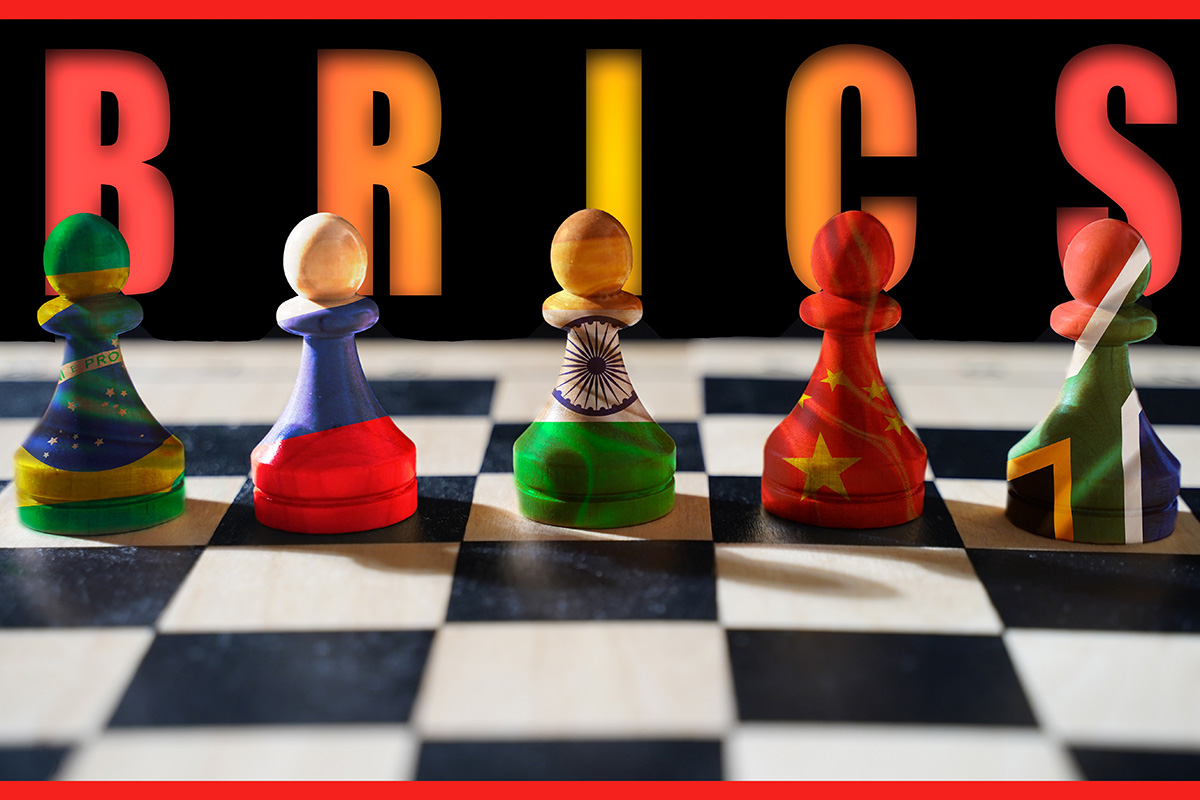Beijing-Moscow BRICS: Dilemmas and the Dividing Lines
October 21by Chimaobi Omeye
The 16th annual BRICS summit will be hosted this year from October 22 to 24 by The Kremlin, in the beautiful Russian city of Kazan. The motto for the summit is ‘Strengthening Multilateralism for Just Global Development and Security’ and the focus will mostly be on Moscow-led ideas of a new payment system that could withstand western sanctions; the development banks and agencies that could replace IMF and the World Bank; and the de-dollarisation of the world economy. For President Putin, this is another opportunity to strongly communicate to the West that Russia cannot be isolated, but rather has been able to make new friends in the global arena.
This is the first time the fast-growing BRICS will be dining with its new members Egypt, Ethiopia, United Arab Emirates and Iran which were admitted last year at the event in South Africa. The summit also expects to approve the membership of other nations like Nigeria, Indonesia, Algeria, Mexico, Malaysia, Zimbabwe and Turkey which have shown interest in joining.
In my last piece on the BRICS titled The BRICS Game and the World Order I highlighted the potential of the BRICS and that it seems to be a big threat to the G7 and the overall monopoly of the US-led West in the world order game. But does the BRICS have what it takes to win these political battles? Have mistakes been made so far, and what needs to be addressed for the emerging organisation, led by Moscow and Beijing, to achieve its multipolar world order movement? How can the diverse interests of Moscow, Beijing, Pretoria, Brasilia, New Delhi and others be aligned?
Membership Dilemma
I totally agree with the reservations of Brasilia and New Delhi that expanding membership of the organisation might negatively affect how effective and strong the body could be. But for Beijing, there is no going back as expansion represents what they stand for, which is the multipolar idea, and would benefit the Chinese government, most especially in her pursuit of economic dominance over the US. The process of decision making will be difficult if the BRICS keeps expanding rapidly, as countries from different backgrounds and with different agendas would keep complicating the issues at hand. For me, this is a dilemma that needs to be addressed at the summit, especially in relation to the application for membership by Türkiye, which is part of NATO.
Dividing Lines
Another big issue that could endanger the existence of the group is the wide dividing lines among the members and potential members. Starting from Africa, there is the long rivalry between Nigeria, which is vying to join, and South Africa. Politically, these two powerful African nations hardly agree on anything. There has been a long history of xenophobic attacks on Nigerians in South Africa and reprisals on South Africans in Nigeria. Just recently the Nigerian Junior Basketball team, D’Tigers were denied visas to participate in a tournament in South Africa. All of this does not bode well especially if Nigeria eventually becomes a member.
New members, Egypt and Ethiopia are in a terrible relationship following the recent arms deliveries to Somalia by the Egyptian military after Ethiopia signed a deal with Somaliland, a breakaway region of Somalia. Relations have also been strained because of Ethiopia’s dam project in the Nile.
We have seen Brazil voting to condemn the Russian invasion of Ukraine at the United Nations, discordance you would hardly see among the G7 nations. We have also seen how the New Development Bank, established by BRICS, put all transactions in Russia on hold in 2022 after the invasion of Ukraine, which is a bit confusing.
The political and economic battles of India and China cannot be ignored. New Delhi wants to straddle the fence, that is dining with the West while also standing with the global south. It also wants to be the regional leader against the wishes and plans of Beijing. New Delhi does not want an anti approach system which contradicts what Beijing and most especially Moscow want. Also, the potential admission of Pakistan, arch enemy of India will complicate these dividing lines. Finally, the tension and rivalry between Iran and Saudi Arabia is another internal dispute to worry about.
Another worry is the very low levels of trade among member states, apart from Russia and China. This low level of trading activity is the major reason why the majority of members of BRICS are happy with the US-led SWIFT payment system and reserve currencies. BRICS needs to address these issues and define its union and the future, otherwise it will just be a matter of time before it becomes history like the Warsaw Pact or the Soviet Union.
BRICS should be unique, direct and intentional in decision making. Leadership should also be defined, and the current membership drives and internal dividing lines need to be looked at and addressed. The multipolar world order message is clear and seems to align with the majority of the countries of the world who are against the unilateral mission of the western-led order. The member states must change the current state and direction otherwise time will tell for its eventual collapse.






